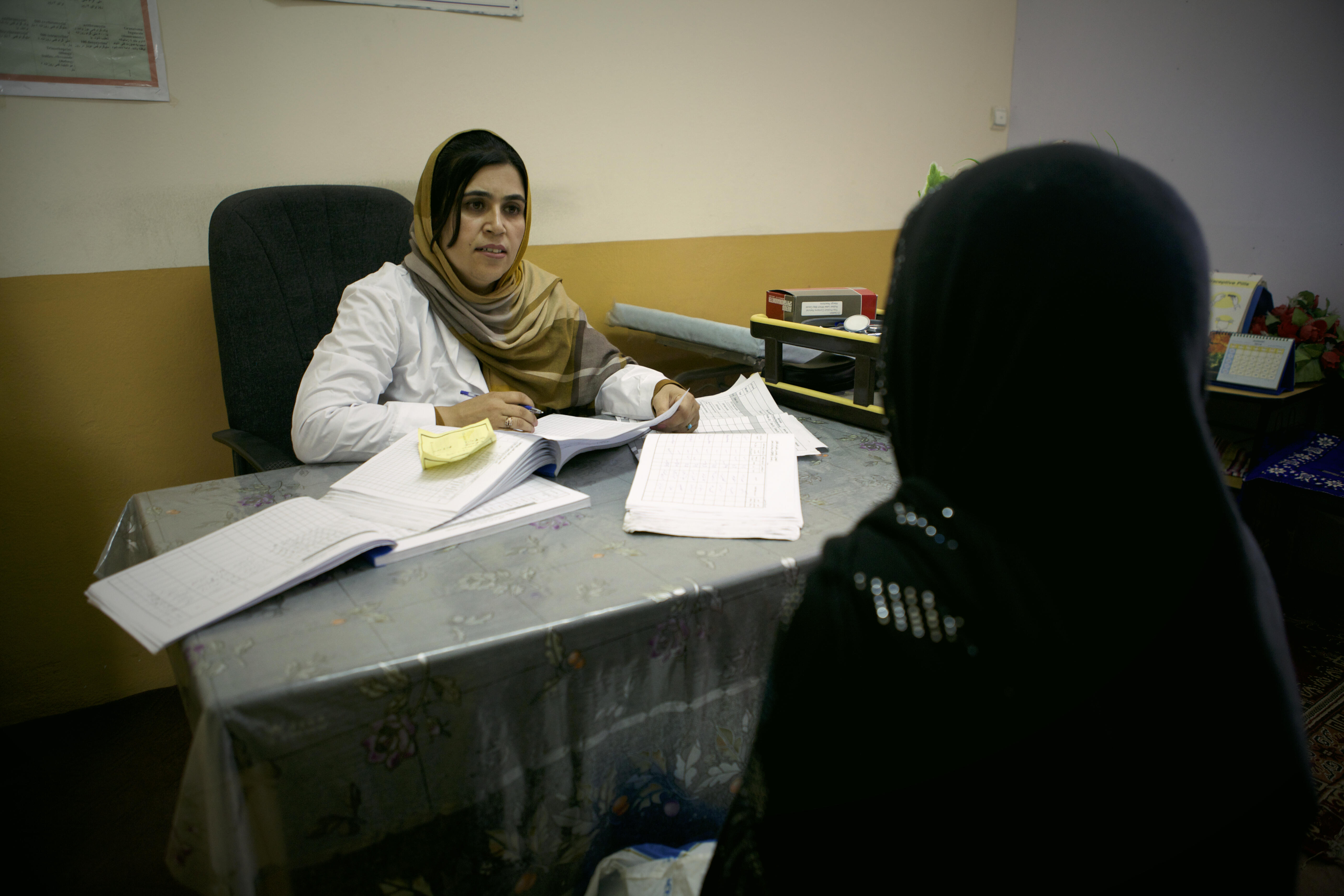JALALABAD, Afghanistan – Educating girls is still a taboo for many families in some parts of rural Afghanistan. 17-year-old Fariba lives in Safi Abad, a suburb of the eastern city of Jalalabad. She was born and lived as a refugee in Pakistan. Despite being a refugee, she managed to study up to the 11th grade.
However, she faced huge resistance from her family for going to school upon her return to Afghanistan. Her relatives decided that the situation back home was not conducive for a girl to go to school. Fariba was not happy with her family’s decision; she cried day and night in isolation. She felt hopeless and devastated. Her family and relatives tried to comfort her but she remained inconsolable.
Fariba’s life changed when a lady from her village advised her to visit and seek advice from a psychological counsellor of a UNFPA-supported Mobile Health Team that visits their village regularly. The reluctant Fariba went ahead and met the counsellor, Gul Mina, when the mobile clinic visited her village. Solving problems through discussion and counselling was something Fariba had never heard of before and this prompted her not to believe in counselling.
Gul Mina, after meeting with Fariba, facilitated her meeting with a physician on the Mobile Health Team. The physician diagnosed Fariba with depression and advised her to bring her mother to the clinic two weeks later.
With the hope of getting help for her daughter, Fariba’s mother visited the counsellor when the Mobile Health Team made the next bi-weekly visit to Safi Abad. The doctor and the counsellor informed Fariba’s mother of Fariba’s depression in private.
Satisfied with the explanation given by the medical team about the cause of Fariba’s depression, Fariba’s mother not only changed her mind about sending Fariba to school to give her comfort but also advocated for the family to send her back to school. She convinced Fariba’s father to allow their daughter to go to school for the sake of her mental well-being.
Fariba says that the Mobile Health Team, and in particular the counsellor Gul Mina, changed her life. She was placed in a girls’ school again after a long pause from studies. Fariba has not only been living a depression-free life since then but is also taking firm steps towards reaching her goal of further studies – she is scheduled to take her 12th grade examination soon.
Having come out of a difficult psychological situation, Fariba is optimistic about her future and is determined to get a higher education and serve humanity, and especially Afghan women.


